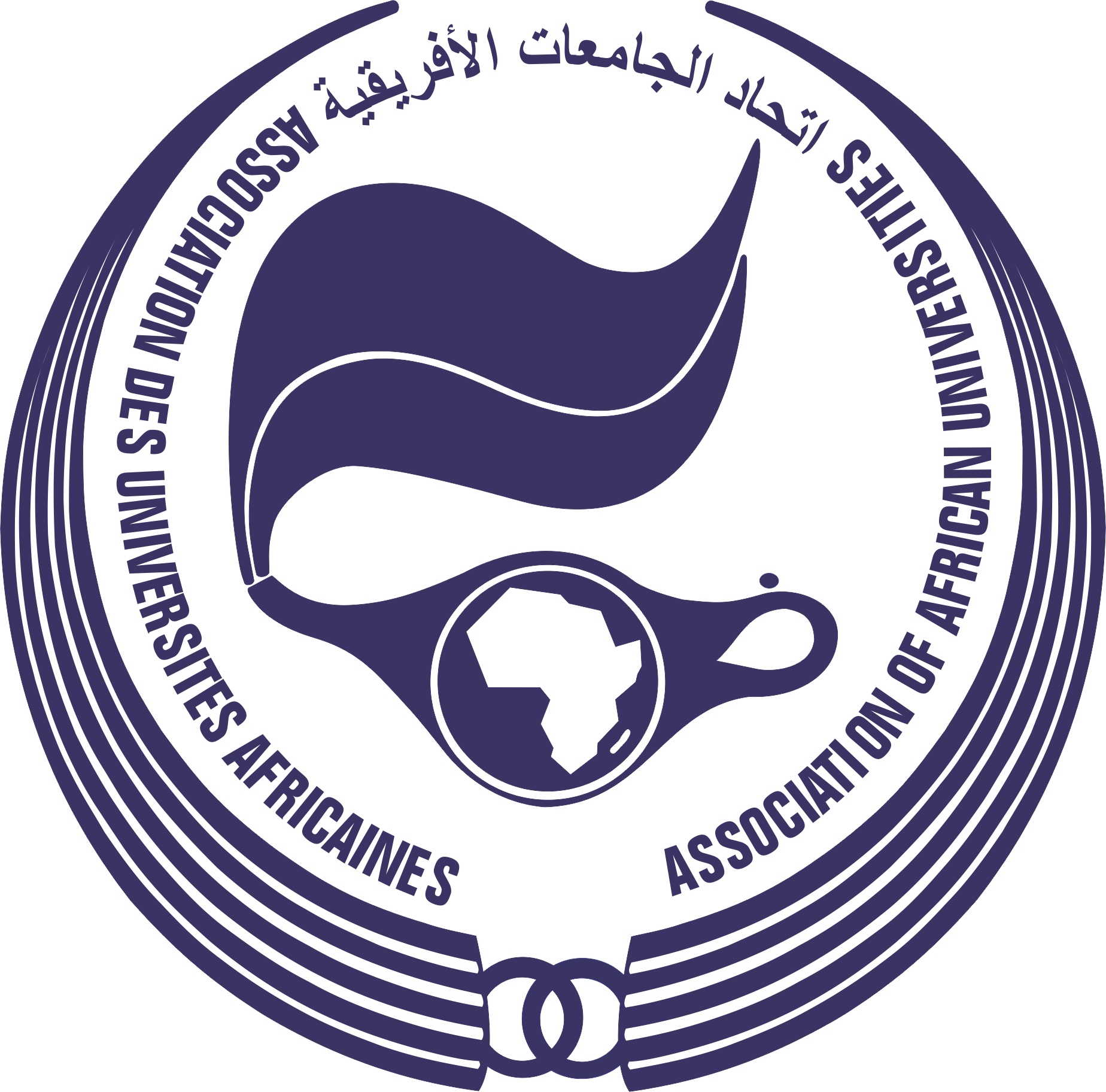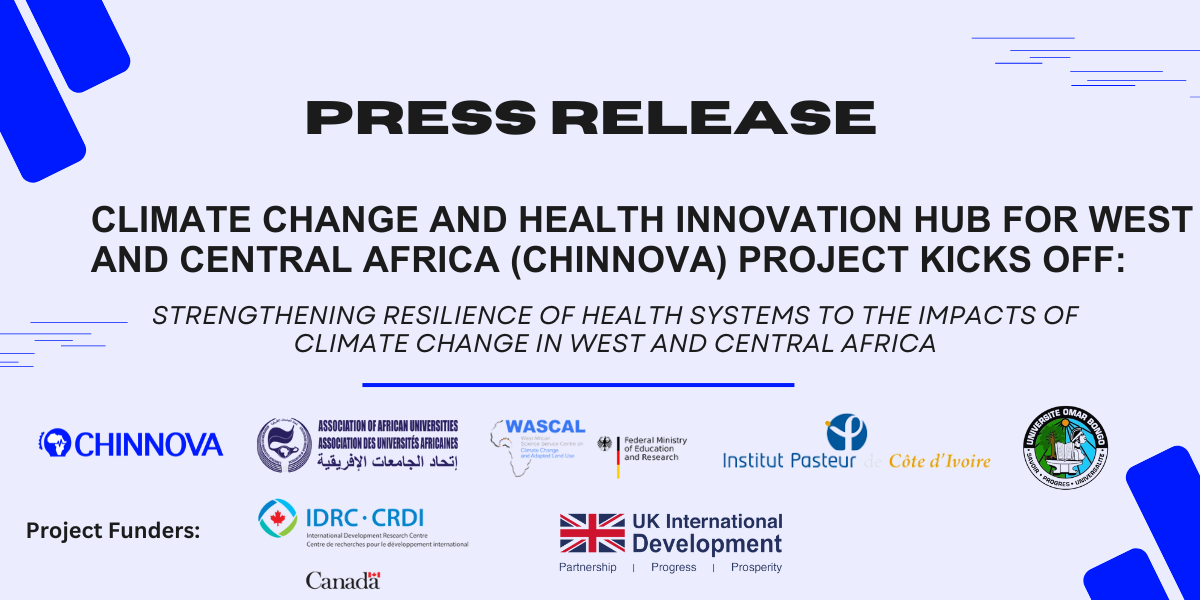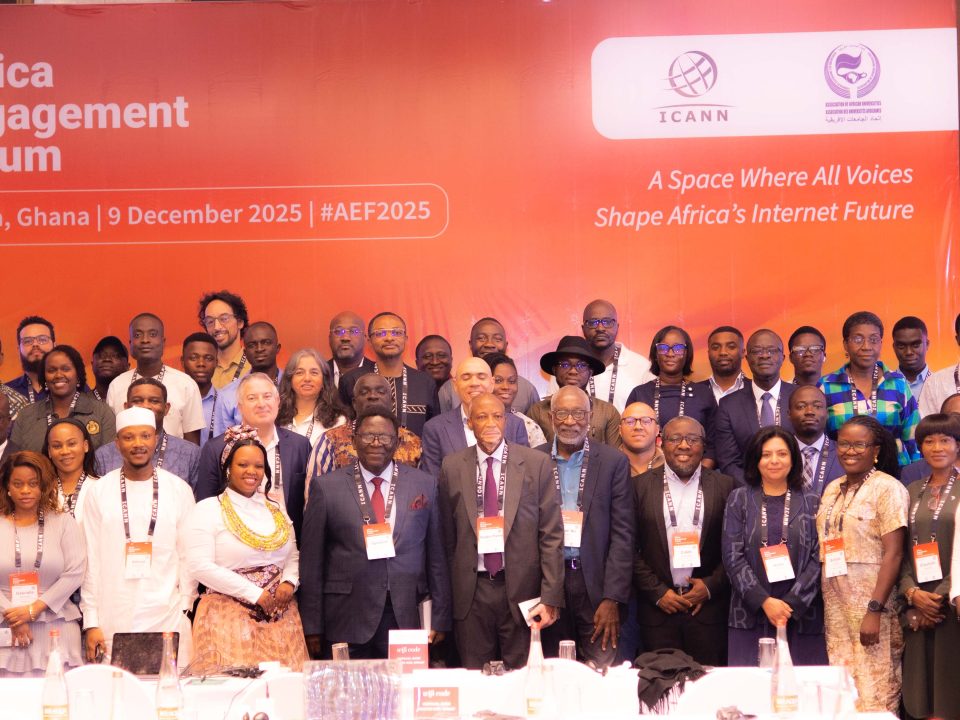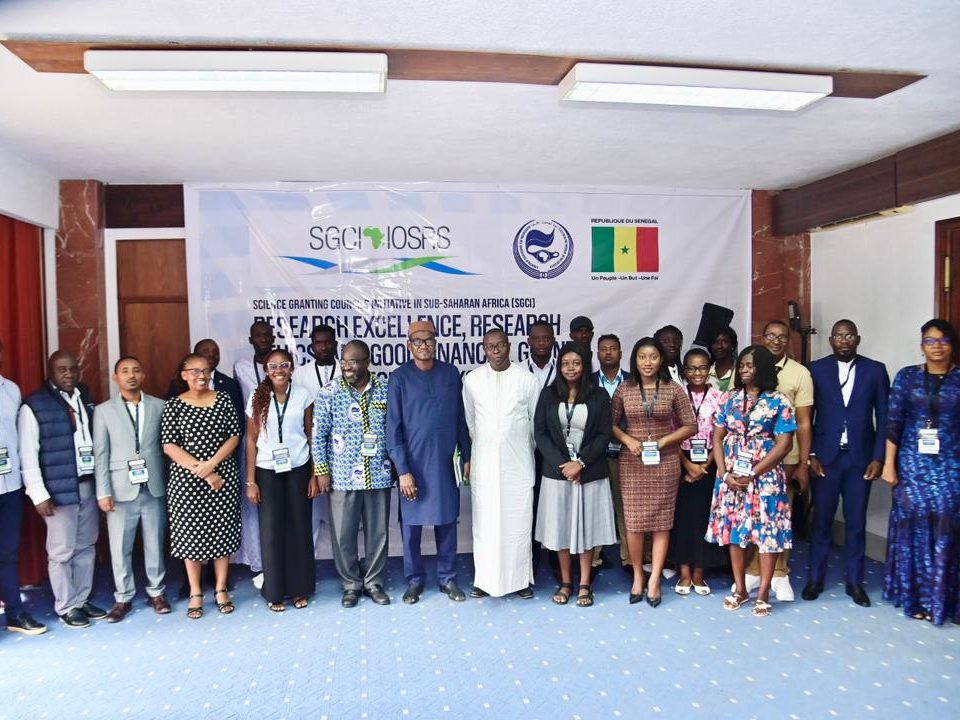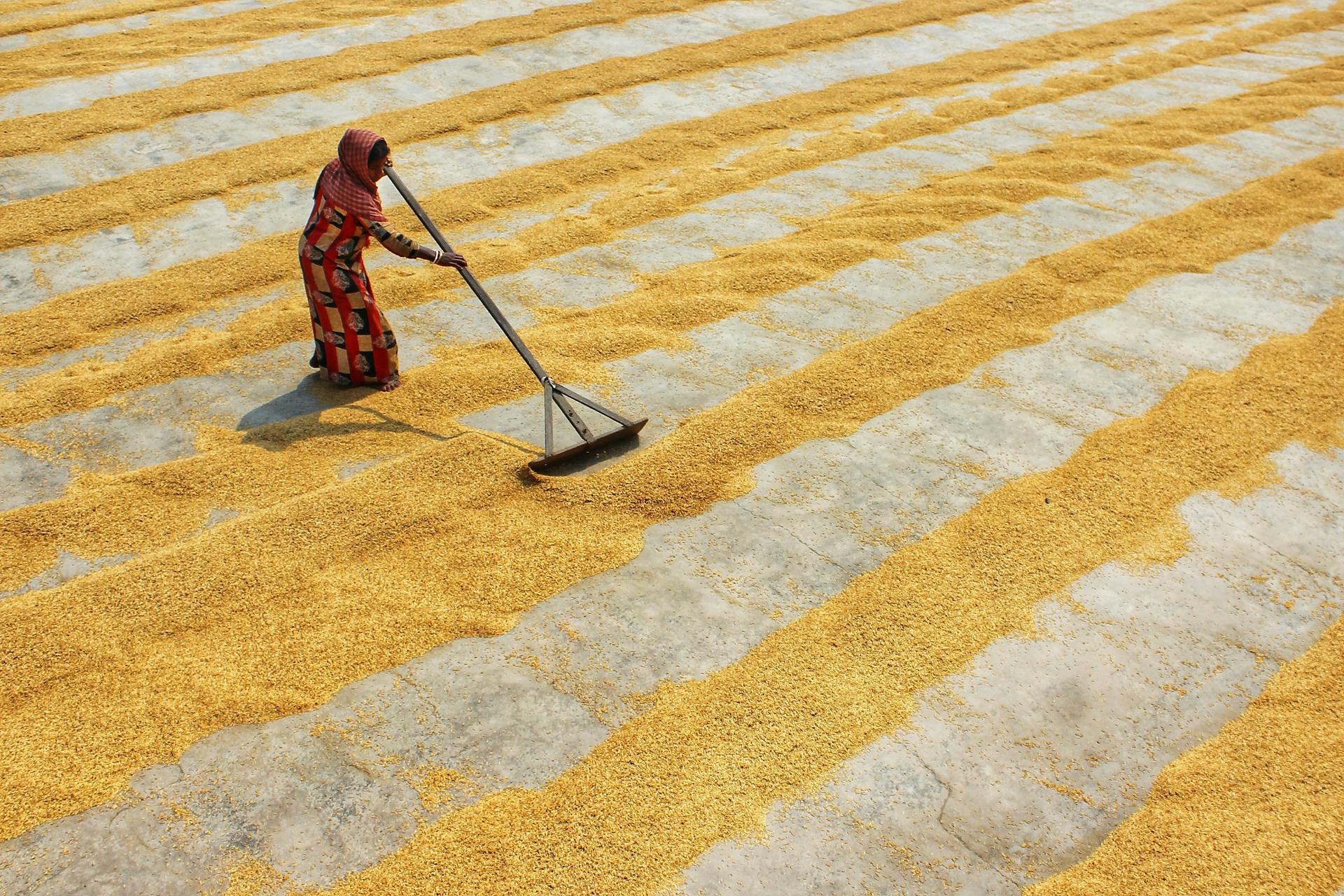
Invitation to the Scientific Roundtable Discussion on Advancing Food Processing in Africa: Challenges, Innovations and Opportunities
January 20, 2025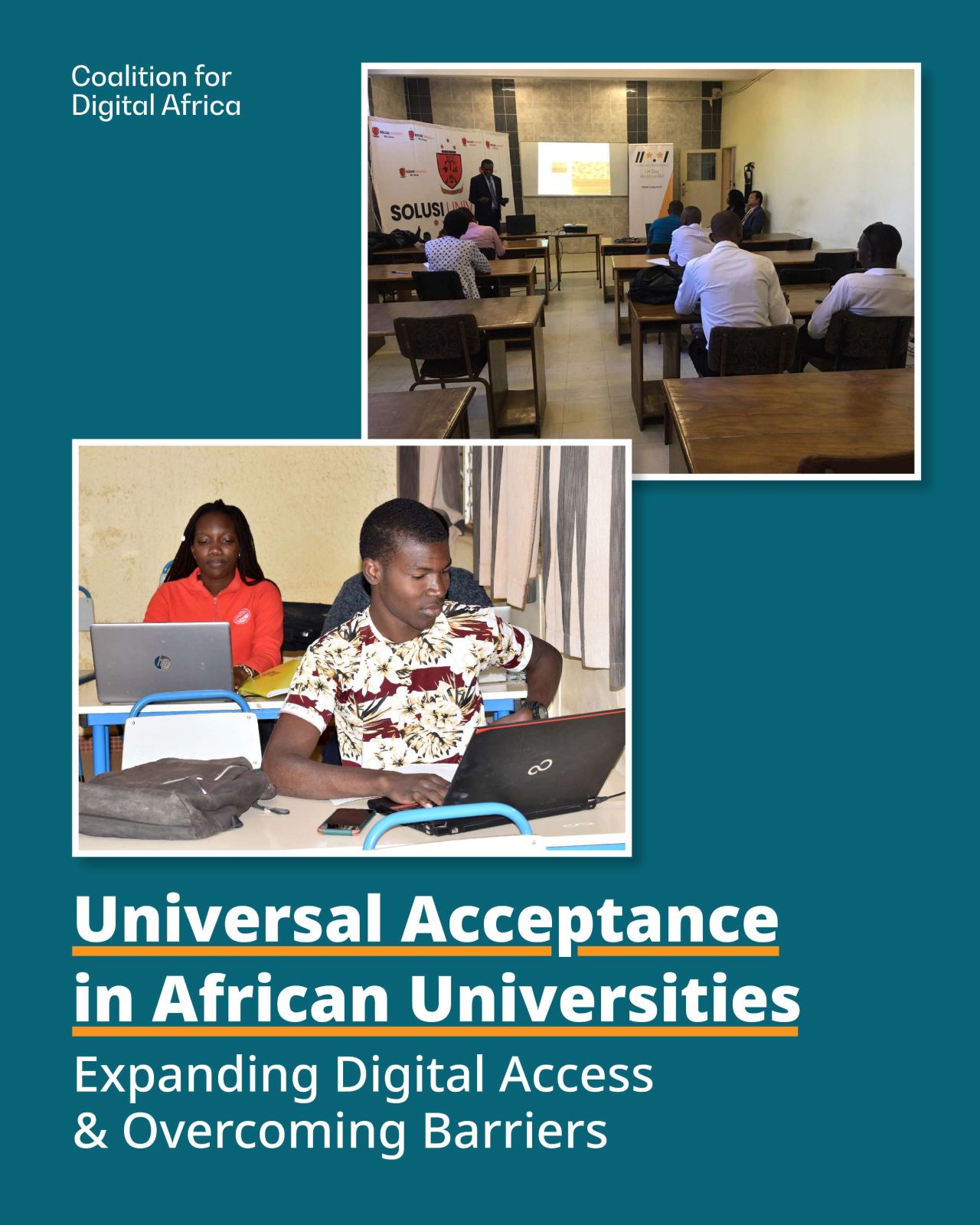
Universal Acceptance in African Universities: Advancing Digital Inclusivity
April 14, 2025Accra, Ghana, February 10, 2025 – The Climate Change and Health Innovation hub for West and Central Africa (CHINNOVA) project has commenced. The implementation of the project is in response to the escalating threat of climate change to health systems in West and Central Africa, a region disproportionately burdened by climate-related diseases and disorders. Download the Press Release in English and in French.
CHINNOVA is a 4.8 million Canadian Dollar project funded by the International Development Research Centre (IDRC), Canada and the UK Foreign Commonwealth Development Office. It is being implemented from 2025 – 2028 by a consortium led by the Association of African Universities, in partnership with the West African Science Service Centre on Climate Change and Adapted Land use (WASCAL), Institut Pasteur de la Côte d’Ivoire (IPCI), and the University of Omar Bongo (Université Omar Bongo) in Gabon.
The Climate change and Health INNOVation hub for West and Central Africa (CHINNOVA) is a network of networks designed to strengthen resilience in health systems to climate change through improving data availability, fostering interdisciplinary and inter-sectoral collaborations, and building the capacity of the health workforce to anticipate and respond to the outbreak of diseases and disorders related to climate change. Climate change continues to pose significant challenges to public health, including the spread of vector-borne diseases, heat-related illnesses, and disruptions to healthcare delivery systems, particularly in vulnerable regions such as West and Central Africa. To mitigate these impacts, innovative solutions are urgently needed, making CHINNOVA’s mission critical to the region.
Several key activities will be implemented under this initiative, including funding up to 10 innovative projects through an open call for proposals, accompanied by technical, administrative, and methodological support to sub-grantees. The initiative will also build capacity to address common challenges and foster collaboration among projects, with a strong emphasis on integrating gender equality and inclusion principles. Additionally, CHINNOVA will establish a robust knowledge management system and a network for systematic climate change and health data collection, ultimately enhancing the availability of disaggregated and interoperable climate and health data to inform research and services in West and Central Africa.
Prof. Olusola Bandele Oyewole, Secretary General of the AAU, stated, “We are pleased to lead the implementation of CHINNOVA, a pivotal project that marks a significant step towards building climate-resilient health systems in West and Central Africa. Our commitment to inclusivity ensures that the needs of the most vulnerable populations, including displaced persons, refugees, and indigenous communities, are integrated into the development of innovative climate-health solutions. This is a veritable opportunity to foster multidisciplinary, interdisciplinary and transdisciplinary partnerships to generate knowledge that responds adequately to the critical development needs of academia, government, civil society, industry and communities”
Prof. Frederick Ato Armah, Principal Investigator of CHINNOVA and the Director of Research and Programmes at the AAU, noted, “CHINNOVA employs a multi-stakeholder approach to develop inclusive and sustainable solutions. A critical element of CHINNOVA is its emphasis on linguistic plurality and integration, evidenced-informed decision making based on quality disaggregated and context-specific data, and indigenous knowledge systems. We anticipate that all relevant stakeholders will be deeply involved in this comprehensive research program focused on climate change and health policy engagement, knowledge management, and the establishment of an international conference series on climate change and health”. Professor David Teye Doku, a core team member of CHINNOVA, shared similar sentiments.
Professor Kehinde Ogunjobi, Deputy Director of WASCAL and Director of the Competence Centre, Ouagadougou, Burkina Faso, commented “CHINNOVA will integrate diverse datasets from various disciplines—such as meteorology, environmental science, epidemiology, and social science—to promote collaboration and advance the creation of accurate, localized predictions. By working together, our research team will refine models, identify vulnerable areas, and track health outcomes linked to climate shifts. CHINNOVA will also contribute to sharing data, improving predictive capabilities, and designing interventions that are grounded in robust, real-time data. Ultimately, CHINNOVA will ensure that climate health strategies are informed, effective, and adaptable to changing conditions. As WASCAL, we are deeply committed to harnessing the power of CHINNOVA to drive meaningful impact in West and Central Africa”
Dr. Andre Toure Offianan, Director of Research, Institut Pasteur de la Cote d’Ivoire, said “Climate change poses significant challenges to health systems by increasing the prevalence of diseases, disrupting food security, and straining resources. Through this project, we aim to generate evidence to guide policy, improve health system resilience, and ensure interventions address the needs of vulnerable populations. By sharing knowledge and resources, we also aim to strengthen the capacity of health workers and foster more equitable, effective responses to climate-related health issues”.
Dr. Aba’a Ibrahim, Core Team Member and Researcher, Universite Omar Bongo, Gabon emphasized, “In Central Africa, where climate vulnerability and complex health challenges intersect, collaborative research is crucial. CHINNOVA will enhance local capacity for climate data collection, monitoring, and response, enabling governments and health systems to develop targeted, region-specific strategies that tackle the intertwined challenges of climate change and public health.”
The commencement of CHINNOVA marks a pivotal moment in our quest to undertake groundbreaking policy-relevant research that comprehensively addresses the devastating impact of climate change on health systems in West and Central Africa. By harnessing the power of innovative solutions, collaborative research, and capacity building, CHINNOVA is poised to drive transformative change in the region’s healthcare landscape. With a deep commitment to inclusivity and equity, the project partners are dedicated to ensuring the achievement of CHINNOVA’s targets and look forward to working closely with stakeholders to protect the most vulnerable populations from the debilitating impacts of climate-sensitive diseases and disorders.
- END –
About the Implementing Partners
The Association of African Universities (AAU) | www.aau.org
The Association of African Universities is an international non-profit, non-governmental organisation created by African universities to promote cooperation among them on the one hand, and between them and the international academic community on the other. It is headquartered in Accra, Ghana, has a membership of more than 450 higher education institutions, and three regional offices – the North Africa Regional Office (NARO) in Cairo, Egypt; East Africa Regional Office (EARO) in Khartoum, Sudan; and the Southern Africa Regional Office in Zimbabwe (SARO) as well as continental offices hosted in Europe, USA, Latin America among others.
Facebook – https://www.facebook.com/AAU67 | X – @aau_67
Media enquiries: Felicia Nkrumah Kuagbedzi, Senior Communications and Publications Officer, AAU, fnkrumah@aau.org; +233246425147
The West African Science Service Centre on Climate Change and Adapted Land use (WASCAL)| https://wascal.org/
WASCAL is the West African Science Service Centre on Climate Change and Adapted Land Use. It aims to enhance the capacity of West African countries to manage climate change impacts and improve land use practices. WASCAL focuses on scientific research, education, and capacity building in areas such as climate change adaptation, agriculture, and natural resource management, with the goal of supporting sustainable development in the region. The center collaborates with universities, research institutions, and governmental organizations across West Africa. By integrating scientific research with local knowledge and practices, WASCAL aims to create solutions that are relevant and effective for the region. The center also contributes to global discussions on climate change and sustainable development by providing valuable insights from West Africa.
Institut Pasteur de la Cote d’Ivoire (IPCI) | https://pasteur.ci/
The Institut Pasteur de Côte d’Ivoire is a prominent research institution located in Abidjan, Côte d’Ivoire. It is part of the global network of Pasteur Institutes, which focuses on biomedical research, public health, and disease prevention. Its research and services help inform policies and strategies to combat infectious diseases and improve health security in Côte d’Ivoire and West Africa.
The University of Omar Bongo (Université Omar Bongo), Gabon | https://univuob.org/
Université Omar Bongo (UOB), located in Libreville, Gabon, is a leading public university committed to advancing human resource development and contributing to Gabon’s socio-economic advancement. As a center of learning and research, Université Omar Bongo is instrumental in nurturing future generations of leaders and professionals, driving innovation and progress in various sectors in Gabon.
